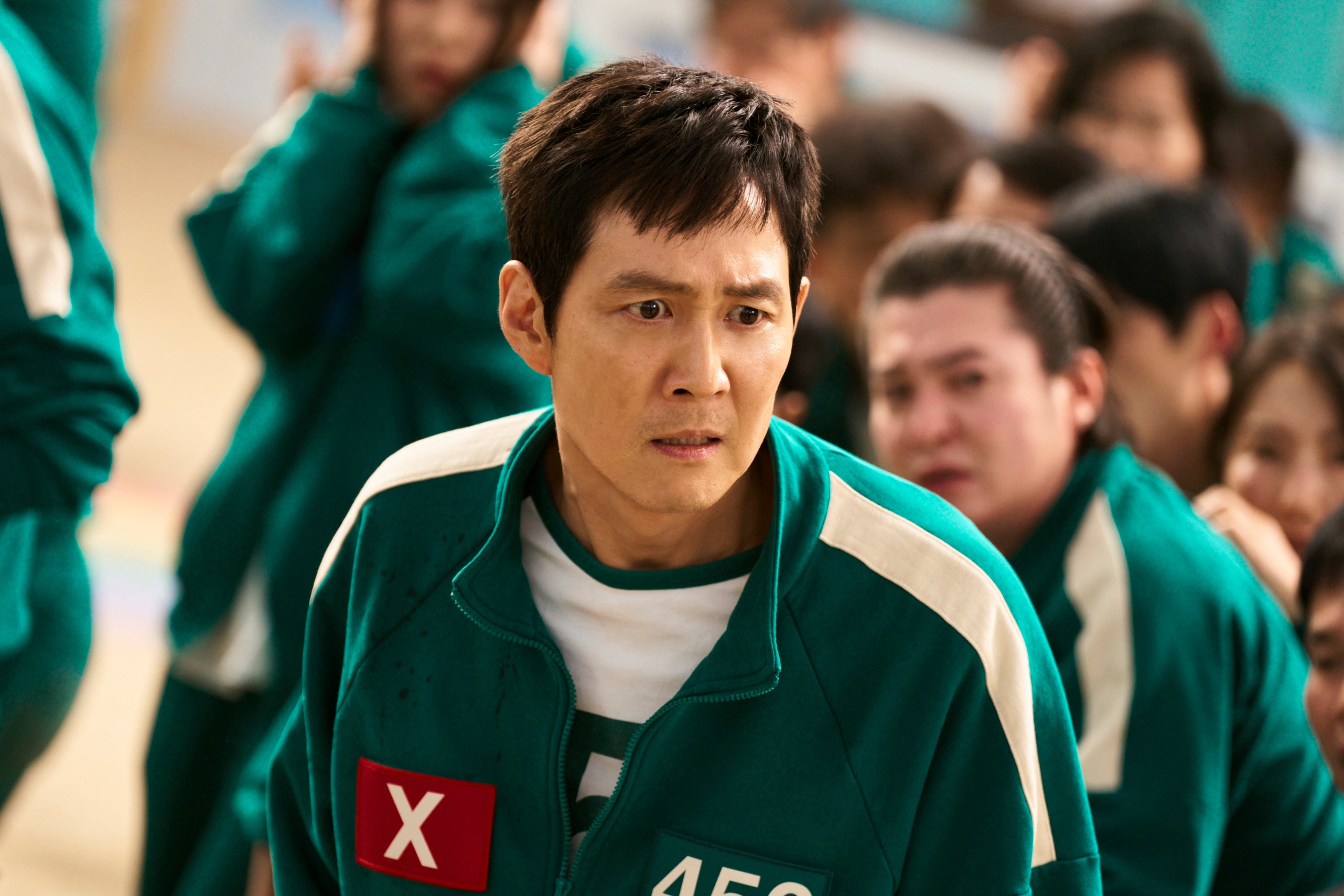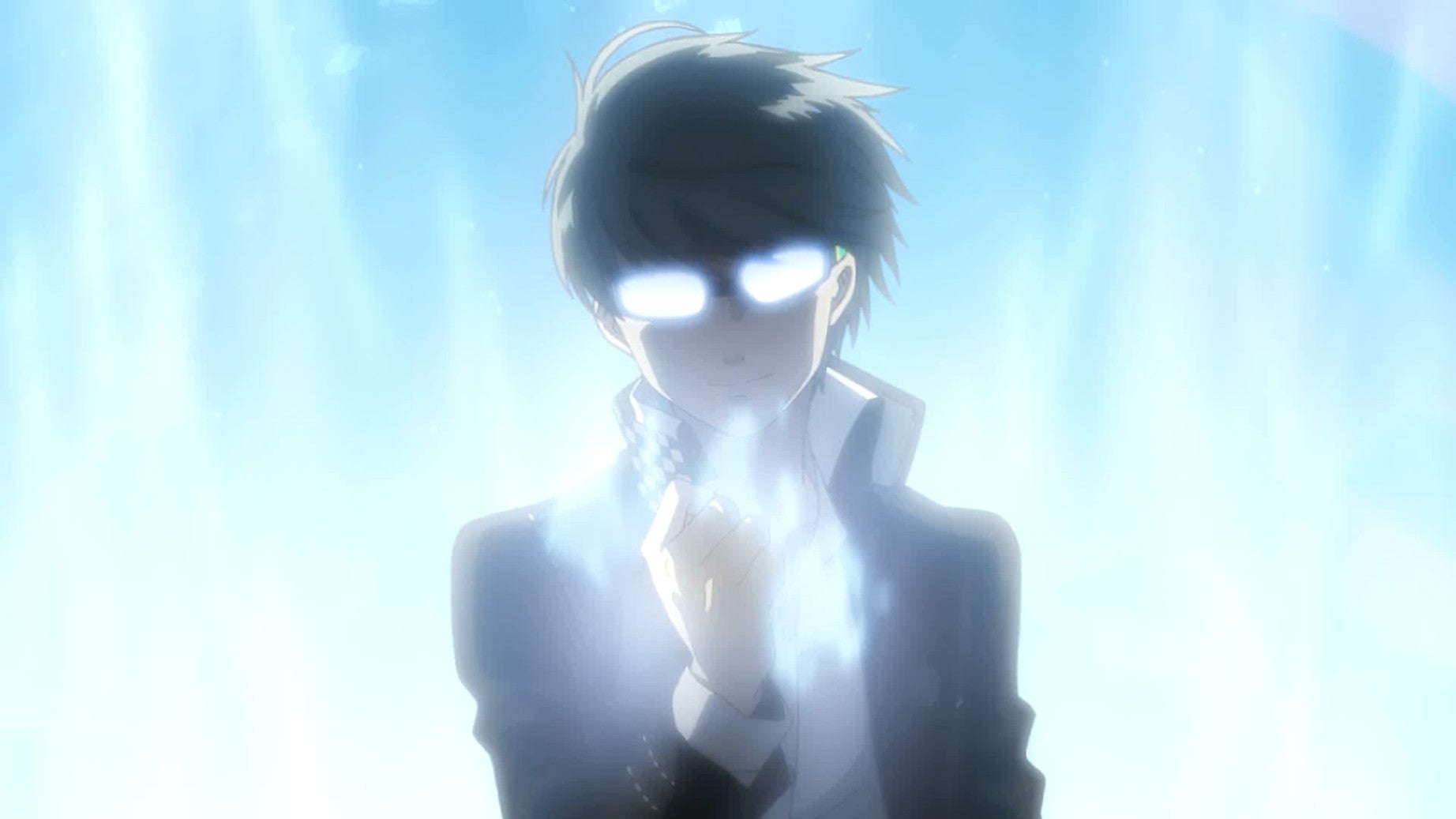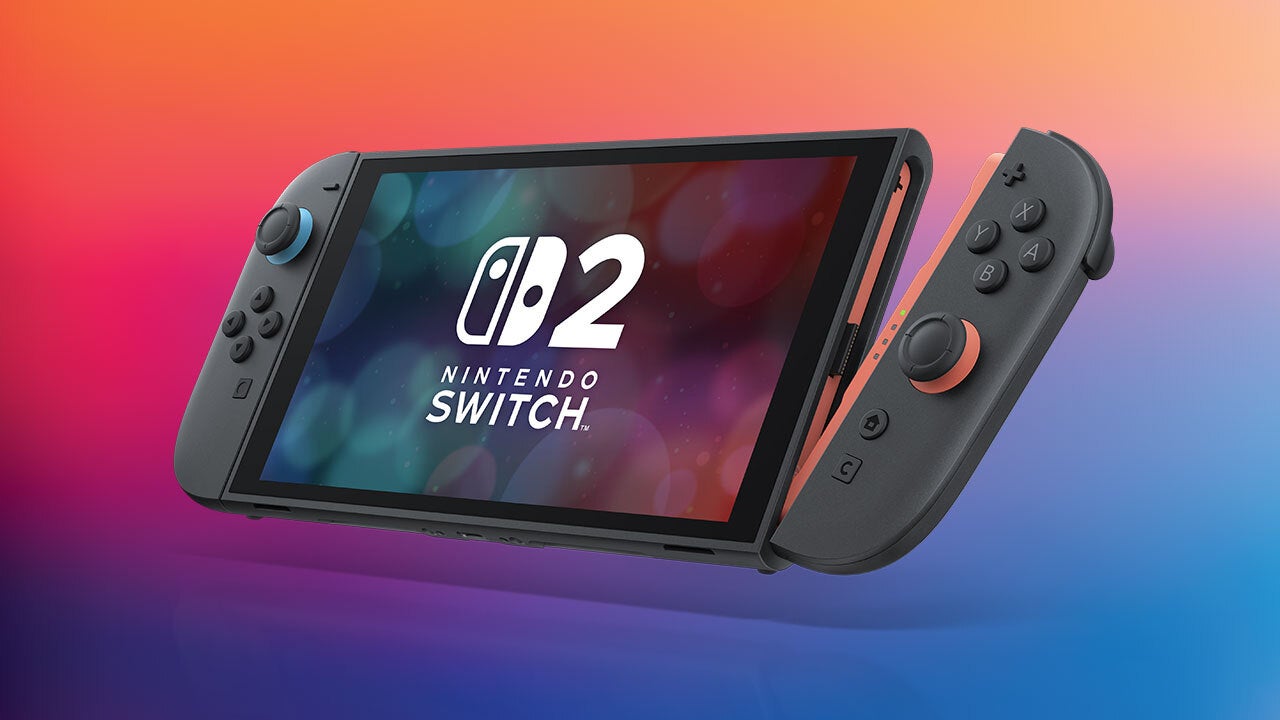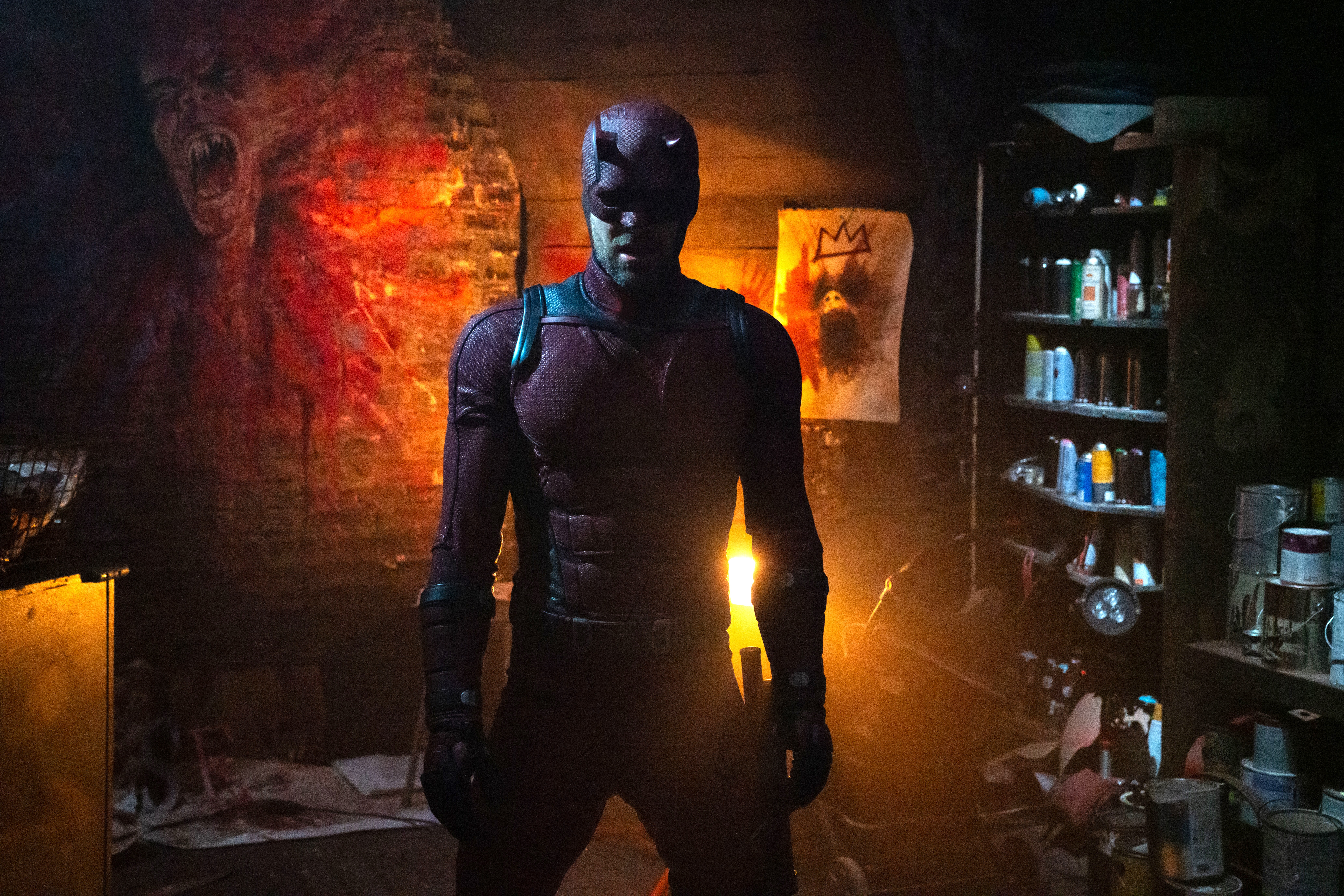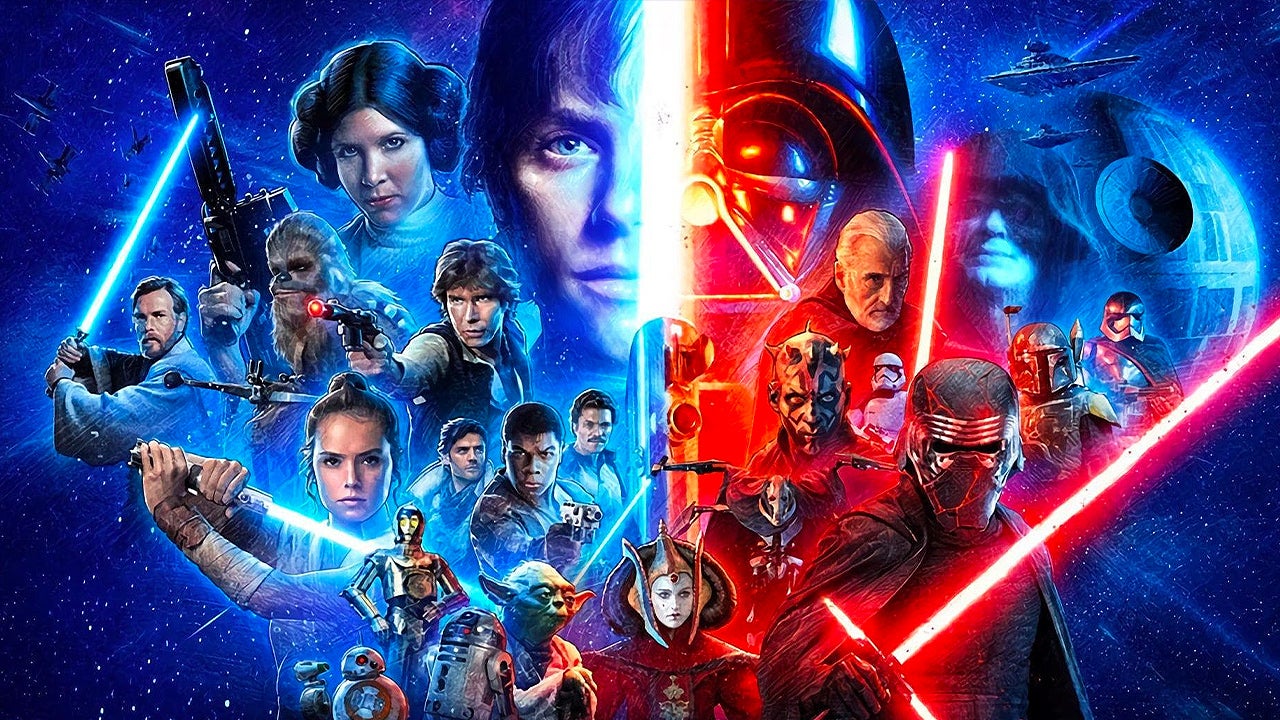This article contains spoilers for Squid Game.
Netflix’s Squid Game isn’t a particularly subtle TV show. It’s a screed against capitalism and wealth inequity to the point that characters say this all out loud, in the dialogue, in the very first episode. Yet since it premiered in 2021, both viewers and even Netflix itself have been gleefully engaging with the show as a capitalist enterprise. So why does everyone keep missing the point of Squid Game?
There are likely a few reasons for this, but to spoil the eventual conclusion here: it proves the central thesis of writer/director Hwang Dong-hyuk’s series, that we are all ultimately trapped by capitalism. It’s darkly funny, in a way, that the culture of fandom and corporate engagement that has grown around Squid Game is the same that leads the players in the show to play the Squid Game in the series… But we’re getting ahead of ourselves.
Squid Game first hit Netflix on September 17, 2021 – and it might be hard to remember now, given the show is a global sensation, but at the time at least in America, it was one of those classic “drop it on Netflix and see what happens” series that wasn’t really promoted by the streamer. No screeners for the press, no rabid red carpets full of screaming fans… And yet it caught on and grew almost immediately. On Nielsen’s report for the week of September 20-26, the show clocked 1.9 billion minutes – and that was only on TV screens, and only in the US. The next week, it garnered over 3.2 billion minutes on Nielsen’s chart, growing to become a clear viral success.
The show itself didn’t seem like a likely breakout hit, given its ultra-violence and dark subject matter. Squid Game (in case you forgot over the past three years, or have yet to check out Season 2) revolves around a death game played by 456 players competing for cold, hard cash. Run by the mysterious Front Man (Lee Byung-hun), the games are framed as a way for the players to even the playing field. They can by majority vote decide to leave at any time – and even do, in Season 1, Episode 2, before promptly returning to the game – but whoever wins gets a sum of cash equal to the amount of people who died playing. Time and again, it’s clear the game is rigged for the enjoyment of the billionaire VIPs who bet on it from the safety of their cushy lounge. And in the middle of this all? The sometimes good-hearted, perhaps naive loser Seong Gi-hun (Lee Jung-jae), who goes on to – spoilers here – win the game, though perhaps at the cost of his basic belief in the goodness of humanity.
Season 2 widens things out further. We get to see what economically drives one of the Squid Game guards to join up and become a stone-faced murderer. We see a lot more of the outside world in Korea, and how every interaction, no matter how small, is a game driven by commerce. And the Squid Game itself changes to allow a majority vote to leave after every challenge. That latter tweak allows Hwang Dong-hyuk, throughout the season’s seven episodes, to dig into how capitalism controls even the existence of democracy and freedom of choice, and our divides (political, gender, monetary) are exacerbated by the very existence of money dangling over our heads. In this case, literally, thanks to the omnipresent piggy bank hanging over the room where the Squid Game contestants sleep and eat.
While there was some international promotion for the series when it first launched, including an appearance by the Red Light/Green Light doll in a mall in the Philippines, and a replica of the jungle gym set in a Seoul subway station, for the most part, the show traveled by word of mouth. Netflix had to play catch-up over the next few months. In an interview with the New York Times in advance of Season 2, Marian Lee, Netflix’s chief marketing officer, copped to as much. “Everything we did outside of Korea was reactive, because we didn’t know,” she said. “Even the content executives didn’t anticipate that it would be such a global phenomenon.”
By the time Squid Game had become the most-watched Netflix launch in the streamer’s history a month after release (one month later, it would become the most-watched show of all time, period), there was a pop-up store in Paris, and a Red Light/Green Light game complete with actors dressed as Squid Game guards in the Netherlands.
What followed was total Squid Game domination. Dalgona, the honeycomb candy at the center of one of the games in the series, began showing up at homegrown candy stores and even official Netflix pop-ups in malls everywhere, alongside costumes from the show, just in time for Halloween. The press tour eventually caught up, too, leading to the stars of the series growing to international sensations “overnight” (check with your local Korean TV and movie viewer to hear them furiously explain how many of these “overnight sensations” have been celebrities in non-US countries for years). Then came the Golden Globes wins, SAG Award wins, and 14 Emmy nominations, of which the show won five. The Funko Pop!s followed the next year, and as Netflix proudly includes in all of its press releases about Season 2 of the series, based on the footwear of the mostly deceased contestants in the show, “Vans slip-on sneakers sales increased 8,000%.”
While Dong-hyuk was mulling plans for a second, and third season of the series, Netflix began referring to a Squid Game “universe” as early as January of 2022. And they paid off on that promise. Squid Game: The Challenge, a reality game show that reproduced the initial TV series without all the killing hit the service in November 2023, though it was marred by multiple safety and health issues, as well as (per the point of this article) critics pointing out it vastly missed the whole thesis of Squid Game. Similarly, the online multiplayer game Squid Game: Unleashed is a 32-player party game for Netflix subscribers (currently free for everyone in time for the release of Squid Game Season 2) which the streamer’s own press outlet, TUDUM, describes as “takes all the thrills of the hit Netflix show and puts them in your pocket.” To be clear, there is no option in the game to hang yourself in anguish and shame after you’re forced to take your wife’s life in a deadly game of marbles, so perhaps not all the thrills.

Why do people keep engaging with Squid Game as something “fun?” Why is Netflix able to make a cottage industry out of products sold around the show? How are there corporate retreats where actors dress up as the Front Man and Squid Game guards and have employees run through games from the show, ostensibly for team-building purposes? There’s even an official Netflix Squid Game Experience that claims it’s perfect for “School and Camp Visits,” and if the thought of children playing the games from the hyperviolent TV show Squid Game doesn’t make you viscerally uncomfortable, you may be entirely devoid of human empathy.
Part of the issue is that Squid Game, for all its cultural cache, is nothing new. Gladiatorial battles go back millennia. More to the point, everything from Battle Royale to Hunger Games thrives on the idea of people – usually children – fighting to the death for a possible prize, and rich people’s amusement. Those, too, are often misinterpreted by the public (see any of the Hunger Games theme park rides worldwide). Like how society gets dulled by repeated violence in the real world, so too are we inured to it on screen. Squid Game is perhaps not as shocking as it could be, because it’s not the first out of the gate; it’s just another death games series in a long line of series and movies. And like any genre, it has its fans, detractors, and culture that surrounds it.
There’s the question of why we like to watch these things, though, with at least two major reasons. One is the broad sense of why we watch horror movies, violent action spectacles, or even ride rollercoasters: to confront our own real fear of death and overcome it. But to the point of the death game genre, it raises the question of what you would do in the situation, something that Squid Game confronts head-on.
There’s a deeper, more horrifying reason why both viewers and Netflix are able to engage with Squid Game on the most surface level possible, though, and it’s that Hwang Dong-hyuk… Is right. We are under the yoke of corporations and billionaires. They inure us into thinking that capitalism is a game we can win, but it’s rigged to their benefit, and not ours. Think about how the central action of the show features humans, reduced to numbers instead of names, forced to kill each other playing children’s games.
Dong-hyuk distills it down even more simply in Seong Gi-hun’s first encounter with the Squid Game in the series premiere. Penniless, defeated, and beaten up, he encounters a clean-cut man in a business suit (Gong Yoo) on the subway. The man tells Seong Gi-hun he can play a simple children’s game (called ddakji), and after losing the first round is told that if Seong Gi-hun wins, he gets money. If he loses, the businessman gets to slap him. What follows is a series of increasingly harder, more humiliating slaps as the businessman beats down Seong Gi-hun. When he finally wins, Seong Gi-hun goes to slap the businessman back – but no, the game is over. He gets paid. It’s done.
In Season 2, Dong-hyuk drives this home even harder, throwing any sort of subtly out the window in a desperate attempt to get his point across to the section of the audience who saw “die for money” as too opaque a metaphor. The businessman has graduated from ddakji to giving hungry homeless people the choice between bread, and a lottery ticket. Would you rather eat, or have the chance for money you’ll likely never receive? Guess which most of them choose (and lose)?
As the second season continues, in small ways and big Seong Gi-hun is as controlling of the men he sends on a treasure hunt city-wide to find that businessman as anyone running the Squid Game. There’s a major sequence early in the season set on Halloween that is clearly pointed at anyone who thinks it might be fun to dress as a Squid Game guard. Once Seong Gi-hun is back in the game, his seeming heroism turns self-centered, and his vision of bringing down the game is less about saving people than redeeming himself for his own complicated actions. It muddies the waters of the conversation, but also turns the camera towards the audience, practically screaming that if you thought you were a hero like Seong Gi-hun… Well, you’re bad, too.
But what can you do about it? The game is rigged. The billionaires are in charge of it all. Netflix is able to sell you those Funko Pop!s, the Vans, and the Red Light/Green Light Mattel doll for kids because the alternative – you cannot beat the system, we will all die in here – is too horrifying to contemplate. Netflix is worth nearly $400 billion. They are the VIPS in this scenario, seeing no repercussions for their actions. While they’re not literally making us walk a glass bridge until we plummet to our deaths, they are hiding behind their golden animal masks, and reducing us to streaming numbers controlled by the algorithm.
As the Front Man explains early in Season 2 when Seong Gi-hun tells him he wants to end Squid Game once and for all, the key isn’t killing one man, or even multiple men, as Seong Gi-hun has planned. It’s so much bigger than that. “If the world doesn’t change, the game doesn’t end,” the Front Man says. So how do you change the world? How can anyone?
To grasp that in any fashion is to know the system is everywhere, and it’s overwhelming. That’s what the contestants in the show realize during their brief sojourn back to Seoul in Season 1, that dying playing a children’s game is essentially the same as living in society. For us here in the real world, it’s easier to giggle about the actor dressed as the Front Man telling everyone on our corporate team that the Squid Games have begun, taking selfies and eventually heading back to our safe, identical hotel rooms, than contemplate we’re all trapped in one, large Squid Game ourselves, every day of our lives.
